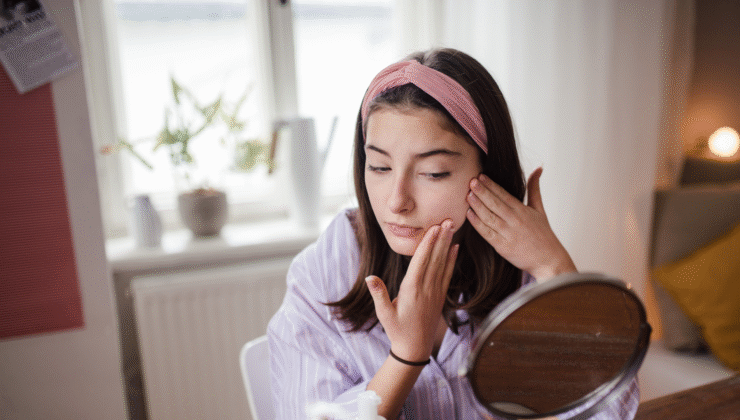The Hidden Dangers of Skincare Content on Social Media for Young Girls
Over recent years, social media platforms have seen an exponential rise in beauty and skincare videos, especially among adolescent girls. While these videos can seem informative or aspirational, recent scientific research highlights significant health risks associated with following such content without proper guidance.
In a comprehensive study conducted by researchers at Northwestern University, experts scrutinized 100 skincare tutorials shared by young girls aged between 7 and 18. The analysis revealed that many of the products promoted lack approval from dermatological authorities and are often used incorrectly, which can have severe repercussions for young, still-developing skin.
Potential health hazards include skin irritation, allergic reactions, and long-term damage. The misuse of skincare ingredients, especially in complex routines involving multiple active compounds, can compromise the skin’s natural barrier, leading to persistent dermatological issues. Experts warn that such practices could cause irreversible harm if not addressed properly.
Dr. Beth Hales, a renowned dermatologist involved in the study, emphasized:
“These social media videos not only promote costly and excessive skincare routines but also pose serious dermatological risks. Children’s skin is still maturing, and improper use of products can lead to irritation, dermatitis, and allergies that may persist into adulthood.”
Furthermore, the study highlights the psychological impact of these online narratives. Content that idolizes flawless skin can foster unrealistic beauty standards, leading young viewers to develop negative self-perceptions and anxiety about their appearance. Algorithms on these platforms amplify such content, further influencing impressionable audiences.
It is crucial for parents, educators, and guardians to actively supervise children’s engagement with social media. Trusted sources—such as licensed dermatologists, healthcare professionals, and reputable health organizations—should serve as primary references for skin health information. Encouraging critical thinking and promoting scientifically backed advice can help mitigate these risks and foster healthier attitudes towards beauty and skincare.
This article was created, translated, and reviewed with AI assistance by an editor or author. For additional details, please refer to our Terms and Conditions. Vezir Agency
 02:00
02:00




 News
News
 Dini Meseleler
Dini Meseleler
 Dini Meseleler
Dini Meseleler
 Eğitim
Eğitim
 Genel
Genel
 Genel
Genel
 Genel
Genel




